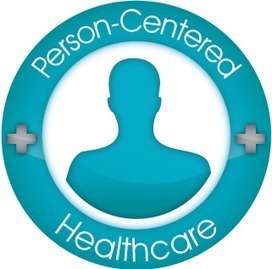New app helps patients manage medications
07/12/2013Veeva Systems: SaaS’s Biggest Bubble And Tech’s Best Short – Seeking Alpha
07/12/2013Patient Reviews for Improving Care:Imagine Yelp for Your Hospital
Hospitals may have been slow to jump on the social media bandwagon, but it turns out these platforms may actually help to improve patient care. Hospitals across the country are turning to Twitter, Facebook, Youtube and even Pinterest to solicit the advice of patients and their loved ones. These patients and family members, referred to by many hospitals as “patient advisors”, are often asked for their opinions and advice via online questionnaires and surveys. This way, medical facilities can assess patient satisfaction, plan improvements in care and consider new services.
A new hospital patient engagement guide released by HHS’s Agency for Healthcare Research and Quality offers “patient advisors” as one of four strategies to eliminate the communication gap between patients, families and healthcare providers. In order for these online advisory councils to work effectively, the AHRC suggests that hospitals “recruit and train patients and family members to serve as advisors and train clinicians and hospital staff to work effectively with them.”
Two New Hampshire hospitals have started down this path, ramping up their social media presence and connections to patients throughout the past year, according to the Concord Monitor. Dartmouth-Hitchcock Medical Center has hired a full-time social media coordinator to reach out to patients and their loved ones. And Concord Hospital is using social media to develop meaningful, two-way conversations with patients. The hospital hopes that social media will also help to build brand awareness and customer loyalty.
The University of Michigan Health System, which includes three hospitals, 40 outpatient locations and more than 120 clinics throughout Michigan and northern Ohio, now turns to a group of « e-advisors » to answer approximately 35 online surveys a year. And the Health System’s teen council provides feedback by responding to questions via a Facebook page dedicated specifically to them.
But patient feedback is not always positive. Imagine Yelp reviews for your doctor or hospital.
« Really, any organization is going to hear complaints, whether they’re on social media or not, » said Brian DeKoning, director of social strategy for digital agency, Raka, in an interview with the Concord Monitor. « Social media gives an organization an opportunity to respond quickly and be part of the conversation, rather than not know there are negative comments happening. For any organization, it’s a benefit to be part of the conversation sooner rather than later. »
Patient feedback can contribute to the success and improvement of any hospital, but recent research published in the Journal of Clinical Oncology suggests that understanding the patient perspective is imperative to evaluating the effectiveness of some treatments as well- specifically, cancer treatments.
« There is no way to adequately assess a treatment’s impact on the patient without including their point of view, gleaned directly from asking about their experience in a consistent and scientifically validated manner, » lead researcher Ethan Basch, M.D., director of the Cancer Outcomes Research Program at UNC Lineberger Comprehensive Cancer Center in a statement.
Recent numbers suggest that just over one fourth of U.S. hospitals use social media channels to interact with patients. Seeing as social media gives hospitals the opportunity to hear patient opinions and complaints and react quicker than ever before, that number is likely to grow exponentially in the near future.
See on healthworkscollective.com




